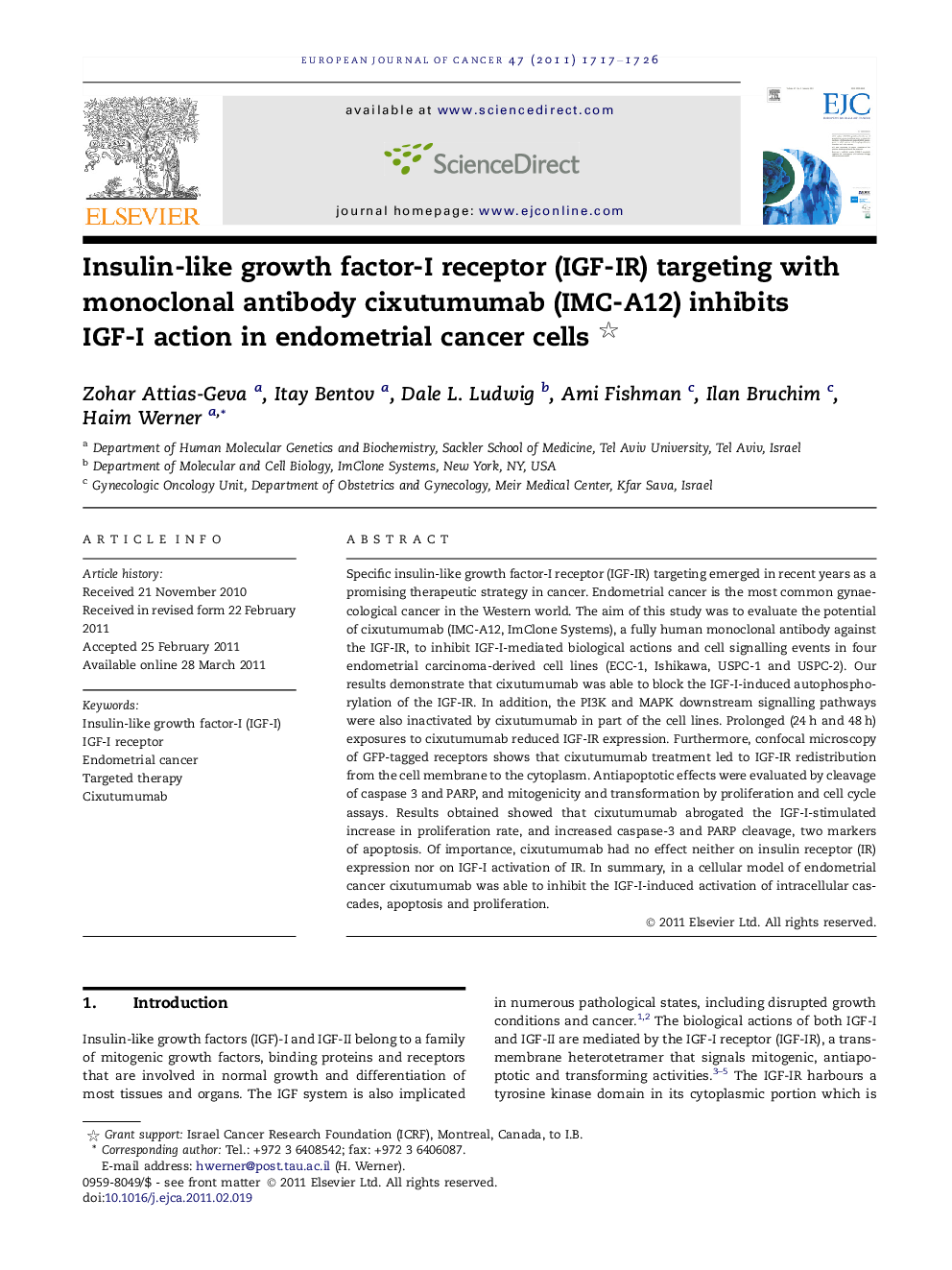| Article ID | Journal | Published Year | Pages | File Type |
|---|---|---|---|---|
| 2122996 | European Journal of Cancer | 2011 | 10 Pages |
Specific insulin-like growth factor-I receptor (IGF-IR) targeting emerged in recent years as a promising therapeutic strategy in cancer. Endometrial cancer is the most common gynaecological cancer in the Western world. The aim of this study was to evaluate the potential of cixutumumab (IMC-A12, ImClone Systems), a fully human monoclonal antibody against the IGF-IR, to inhibit IGF-I-mediated biological actions and cell signalling events in four endometrial carcinoma-derived cell lines (ECC-1, Ishikawa, USPC-1 and USPC-2). Our results demonstrate that cixutumumab was able to block the IGF-I-induced autophosphorylation of the IGF-IR. In addition, the PI3K and MAPK downstream signalling pathways were also inactivated by cixutumumab in part of the cell lines. Prolonged (24 h and 48 h) exposures to cixutumumab reduced IGF-IR expression. Furthermore, confocal microscopy of GFP-tagged receptors shows that cixutumumab treatment led to IGF-IR redistribution from the cell membrane to the cytoplasm. Antiapoptotic effects were evaluated by cleavage of caspase 3 and PARP, and mitogenicity and transformation by proliferation and cell cycle assays. Results obtained showed that cixutumumab abrogated the IGF-I-stimulated increase in proliferation rate, and increased caspase-3 and PARP cleavage, two markers of apoptosis. Of importance, cixutumumab had no effect neither on insulin receptor (IR) expression nor on IGF-I activation of IR. In summary, in a cellular model of endometrial cancer cixutumumab was able to inhibit the IGF-I-induced activation of intracellular cascades, apoptosis and proliferation.
